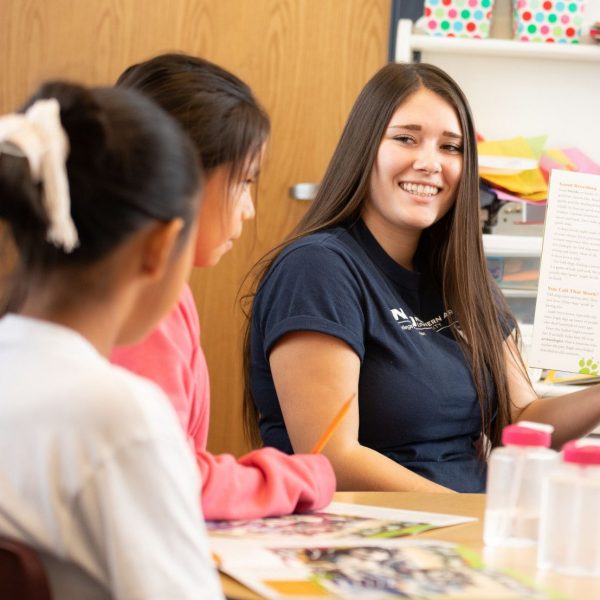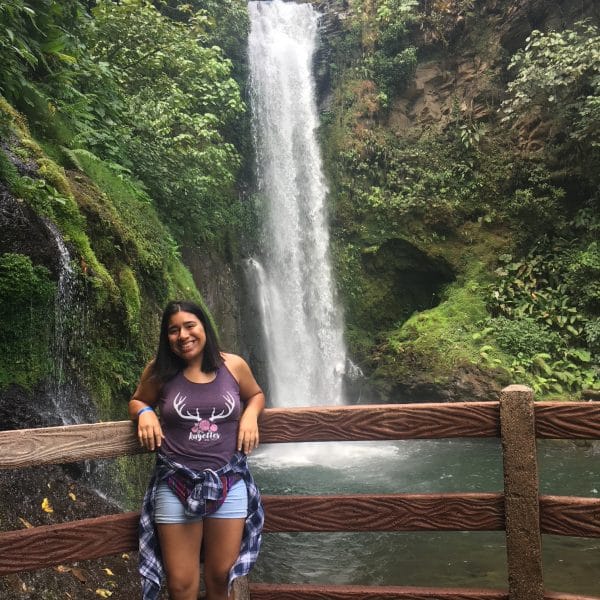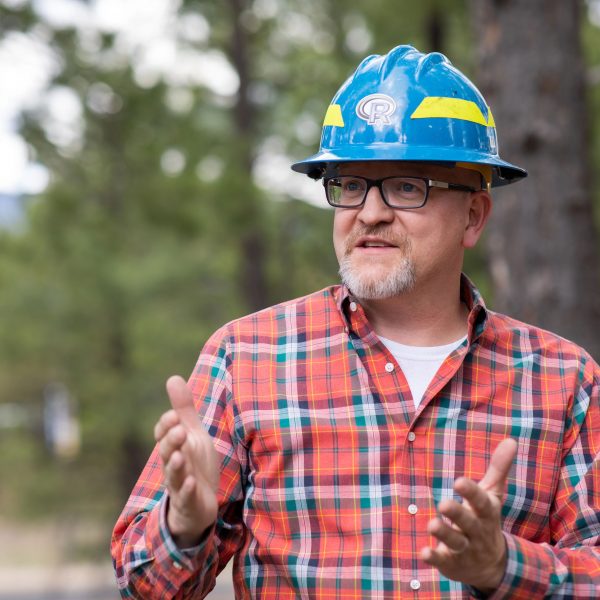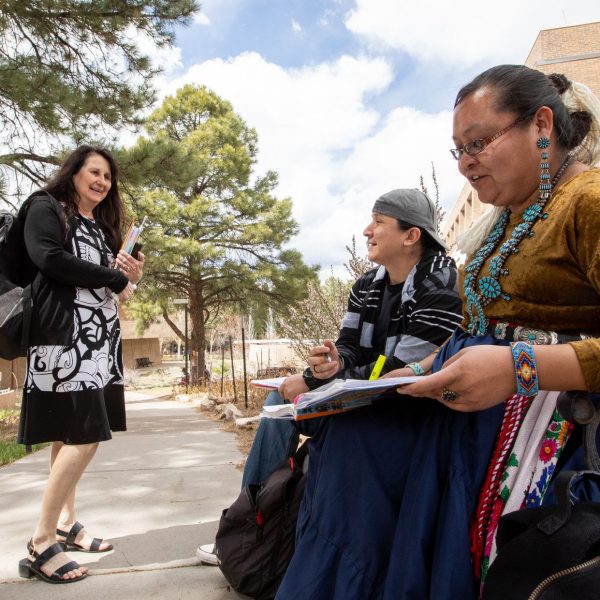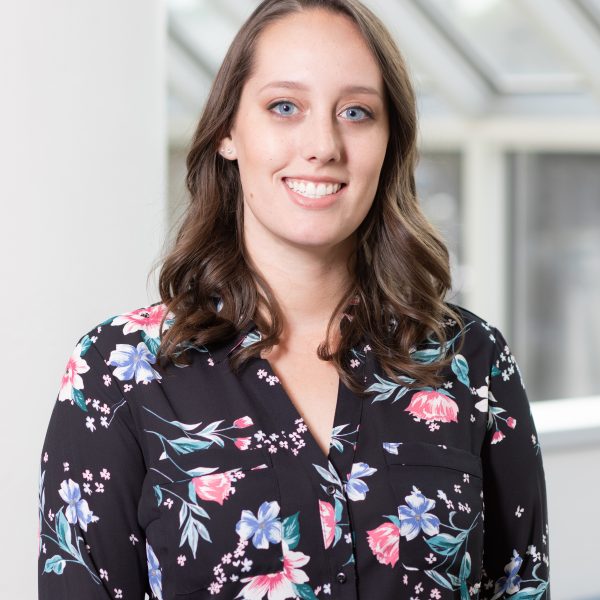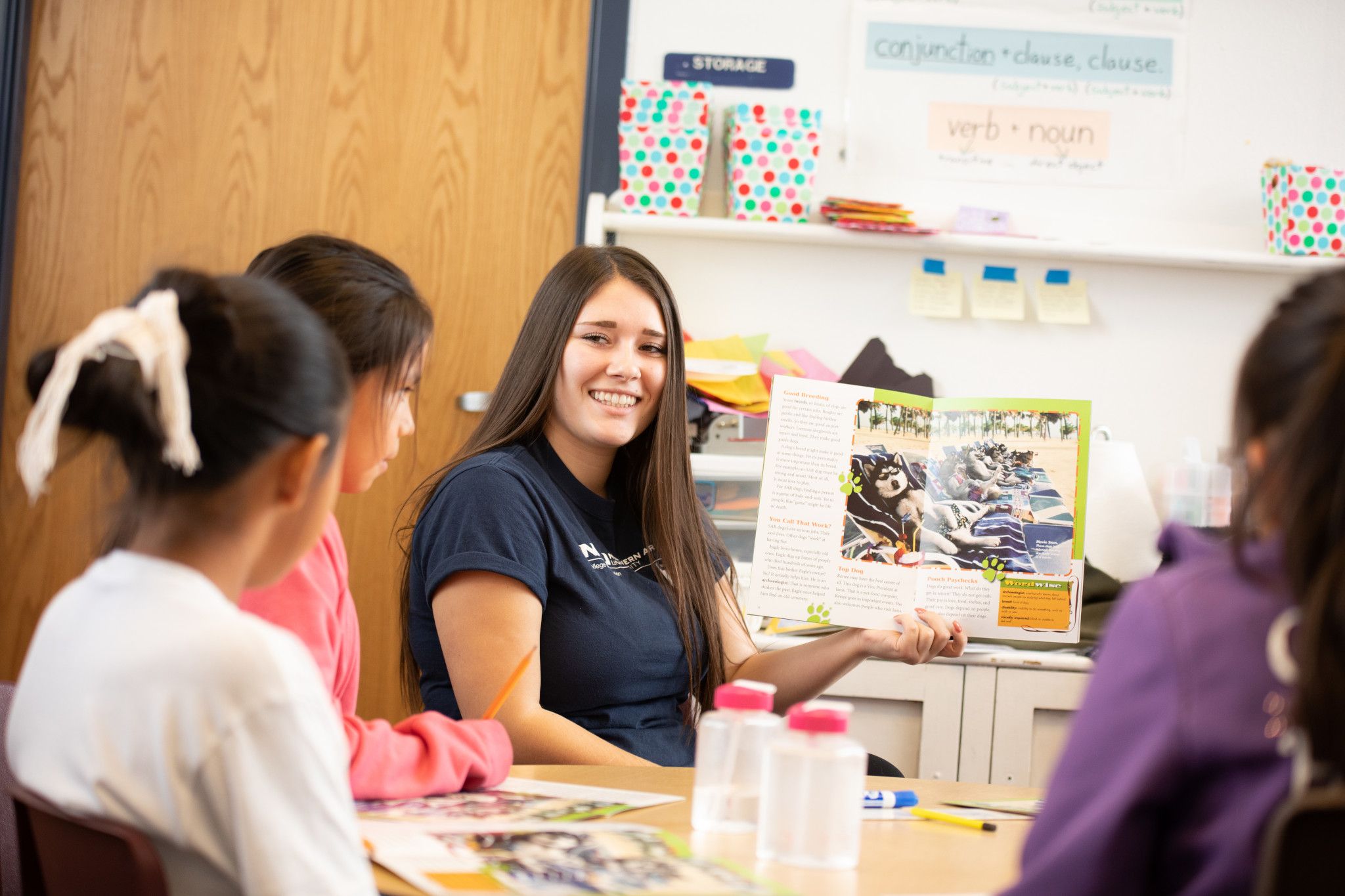
Elementary education alumna Thea Hookey shares a love of learning with her students.
Thea Hookey, a 2021 graduate of Northern Arizona University’s College of Education (COE), was born to teach. That’s good news for the thousands of students whose lives she will help shape throughout her career.
As a third-grader, Thea moved with her mother from California to Lake Havasu City, Arizona. She found the learning experience there much more to her liking than at the Christian academy she had previously attended. The curriculum and “amazing teachers” in Lake Havasu sparked her interest. “I personally liked math and reading,” she said, adding, “I always enjoyed school.”
A high achiever, Thea participated in the dual-enrollment program in high school as an honor student and graduated at age 17 with enough college credits to finish her associate degree in one year. She earned an Arizona Teachers Academy scholarship and went on to complete her bachelor’s degree in Elementary Education, including a semester of student teaching, by age 20.
The Arizona Teachers Academy scholarship covers recipients’ tuition in exchange for a commitment to teach in Arizona after graduation. Thea said she had planned all along to pursue her career in Arizona, so the program allowed her to focus her energy on her students without the stress of student loan payments.
A complete circle
Thea now teaches fourth grade in the same school she attended in grades three through six: Lake Havasu City’s Starline Elementary School. She also did her student teaching at Starline, and is grateful to have the continuing support of Theresa Nigg, her primary mentor during that time. As an added bonus, Thea said, “I got lucky. My best friend from high school, who attended NAU Online, is also a teacher here.” They regularly exchange stories and ideas.
Thea chose NAU because of the environment and opportunities we offer. “I live in the desert. I was attracted to the trees, the mountains, the snow. Once I started looking into the education program, NAU really stood out. I loved the small classes, where you get to know your professors and peers more than at other universities,” she said.
She also enjoyed the culture at NAU. “Lake Havasu is not as diverse; the exposure to a new culture was interesting to me.” Thea explained that though her father is of the Blackfeet Tribe, she was raised in predominately white communities and had little exposure to Native American cultures until her experience at NAU. “I was part of a cohort that traveled to Leupp Public School on the Navajo Reservation to do fieldwork,” she said. “At Leupp, they’re immersed in Native American traditions—the schools plan everything around their culture. Then I worked at Puente de Hózhó, a tri-lingual school, which was so interesting to me. Students take classes in English and Diné [Navajo]—or in English and Spanish. Seeing different cultures opens your mind.”
Once I started looking into the education program, NAU really stood out. I loved the small classes, where you get to know your professors and peers.
Students in COE stay with their cohort and study under the same professors throughout the program. Thea considers all her professors—Shawn Thomas, Gretchen McAllister, and Cecilia Chaffin—as great influences.
But her main professor, Senior Lecturer Cecilia Chaffin, had the greatest impact on her. Thea explained that she got to know Chaffin well since she accompanied the cohort during their many trips to Leupp, a one-hour commute each way. “Ceci made things fun. She is so knowledgeable—and open—we could go to her with anything,” Thea said. “She was also candid. She told us, ‘Yes, teaching can be difficult,’ and she pointed out the bad parts as well as the good.” Eventually, their relationship grew into a friendship.
Strong bonds among the students have grown as well. Through a group chat, they frequently commiserate about issues they face as teachers and encourage and support each other.
For the students
To ensure her students are engaged in their learning process, Thea takes NAU’s student-centered approach to heart. “I make sure everything I do is for the students,” she said. Her love of learning fuels her success.
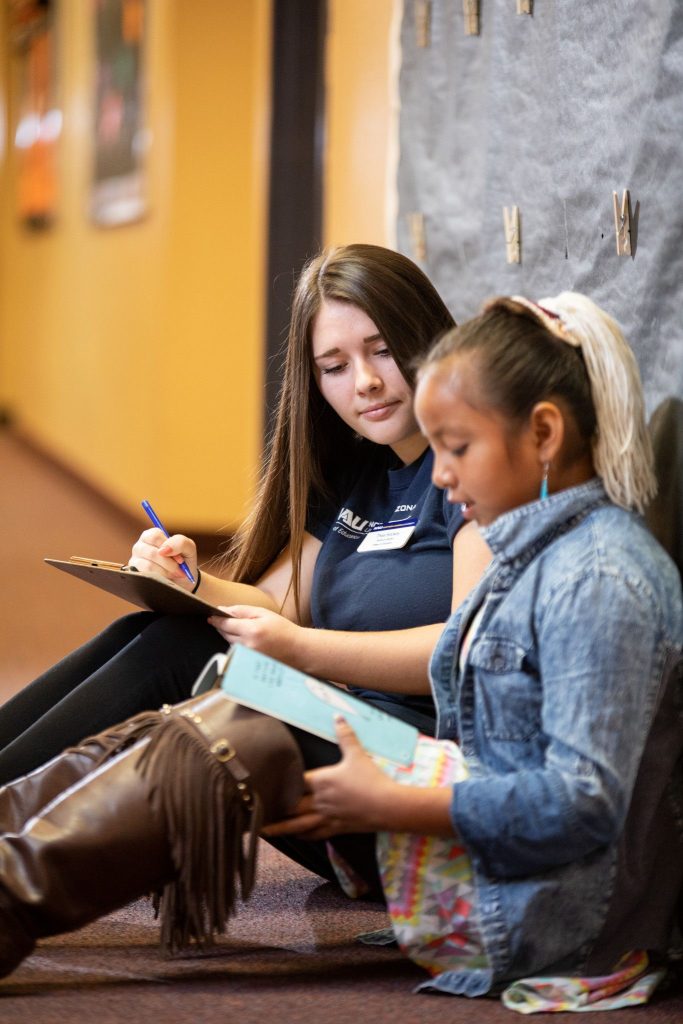
Thea’s philosophy involves ensuring students feel responsible for their own learning and fully collaborate in the process: “Instead of being the big boss, I try to involve students in all decisions, asking them, ‘what do you want more of, less of? What do you need from me?’”
She insists they express their voice, beginning on the first day of the school year. She has the students make the rules after reading books on kindness and respect. Thea has created a “vision board” displaying those rules. “Everything I put on the vision board is from the students,” she said.
She explained that, as fourth-graders, they are ready to think critically about the decisions they make. She involves them in choosing their learning activities. “If I let them set goals for themselves, they are able to take what I teach and turn it into so much more—to apply it to the real world,” she said.
Thea has learned that as a teacher, she needs an “insane” amount of patience to help students succeed. “What keeps me going is my relationship with my students, seeing them grow and learn,” she said. “Seeing that aha! moment.”
For Thea, her students’ success defines her own. “There’s nothing else I could see myself doing in life. I love teaching.”

